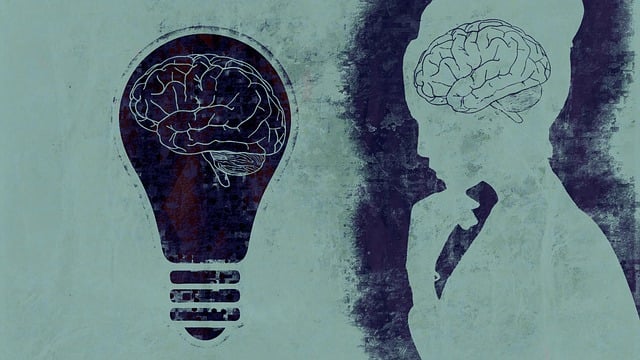Castle Rock Independent Medical Evaluations (CRIMEs) are crucial for effective therapy planning and improved mental health outcomes. These evaluations, conducted by healthcare providers, integrate diverse data sources through interviews, questionnaires, and observations to offer a holistic view of an individual's mental health status. Successful CRIME implementation relies on cultural competency training for providers, encouraging honest self-reporting. Analyzing therapy progress using robust IMEs tracks changes in psychological well-being, guiding therapists in adapting interventions. Privacy, confidentiality, data validation, and cultural sensitivity are essential for effective CRIMEs therapy, enabling tailored approaches like Self-Care Routine Development and Stress Management Workshops to address diverse mental health challenges.
Mental health data analysis is a powerful tool for understanding and improving patient outcomes, especially within structured evaluations like Castle Rock Independent Medical Evaluations (CRIME). This article explores the intricacies of analyzing therapy progress and outcomes from CRIME assessments. We delve into best practices for ethical interpretation, highlighting key considerations for healthcare professionals. By harnessing data-driven insights, mental health practitioners can offer more targeted and effective therapy, ultimately enhancing patient care and well-being.
- Understanding Mental Health Data Collection within Castle Rock Independent Medical Evaluations
- Analyzing and Interpreting Therapy Progress and Outcomes
- Key Considerations for Ethical and Effective Data-Driven Mental Health Care Practices
Understanding Mental Health Data Collection within Castle Rock Independent Medical Evaluations

Understanding Mental Health Data Collection within Castle Rock Independent Medical Evaluations (CRIMEs) is a pivotal step in ensuring accurate therapy planning and improved mental health outcomes. CRIMEs, often conducted by healthcare providers, involve comprehensive assessments that capture an individual’s psychological well-being. This process includes detailed interviews, standardized questionnaires, and behavioral observations tailored to each patient’s unique needs. By integrating these diverse data sources, CRIMEs provide a holistic view of an individual’s mental health status.
Effective communication strategies are at the core of successful data collection in CRIMEs. Mental health awareness training for healthcare providers is essential, ensuring they possess the cultural competency skills necessary to engage patients from diverse backgrounds. This training equips them with tools to navigate sensitive topics and create a safe space for individuals to openly discuss their experiences, fostering trust and encouraging honest self-reporting—crucial elements in accurate data interpretation.
Analyzing and Interpreting Therapy Progress and Outcomes

Analyzing therapy progress and outcomes is a critical aspect of mental health care, offering valuable insights into the effectiveness of treatment plans. By employing robust Castle Rock Independent Medical Evaluations (IMEs), professionals can assess changes in patients’ psychological well-being over time. These evaluations provide a comprehensive view of an individual’s mental state, tracking improvements or identifying areas that require further attention. Using data from IMEs, therapists can adapt their strategies and tailor interventions to foster positive thinking and emotional resilience.
The process involves meticulous record-keeping and interpretation of results. Effective communication strategies facilitate collaboration between therapists, patients, and families, ensuring everyone understands the evaluation’s findings. Moreover, analyzing therapy outcomes can highlight successful approaches and inform the development of innovative practices, including the implementation of community outreach program initiatives that cater to diverse populations.
Key Considerations for Ethical and Effective Data-Driven Mental Health Care Practices

In the realm of mental health care, data analysis and interpretation play a pivotal role in delivering effective and ethical treatment. When integrating Castle Rock Independent Medical Evaluations Therapy into practices, several key considerations come into focus. Firstly, ensuring privacy and confidentiality is paramount; protecting sensitive patient information builds trust and adheres to legal standards. Secondly, rigorous data validation methods are essential to guarantee the accuracy and reliability of assessments, especially when utilizing advanced analytical tools. This includes regular review and calibration of measurement instruments to maintain validity.
Moreover, interpreting results must be done with cultural sensitivity and an awareness of individual differences. Mental health conditions manifest uniquely across diverse populations, necessitating tailored interventions. For instance, promoting Self-Care Routine Development for Better Mental Health can significantly impact prevention strategies, while Stress Management Workshops Organization could foster community resilience against common mental health challenges like Depression Prevention. These approaches underscore the importance of data-driven practices that are both effective and culturally competent.
Mental health data analysis plays a pivotal role in enhancing therapy outcomes, especially within Castle Rock Independent Medical Evaluations. By meticulously analyzing and interpreting patient progress, healthcare professionals can make informed decisions tailored to individual needs. This data-driven approach, focused on both therapy progress and outcomes, ensures ethical practices and fosters effective mental health care. Key considerations include maintaining patient privacy, using robust analysis methods, and continually evaluating the impact of interventions. Embracing these practices not only respects patients’ rights but also revolutionizes Castle Rock Independent Medical Evaluations therapy, ultimately improving patient well-being.














